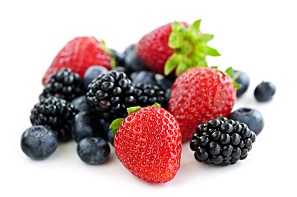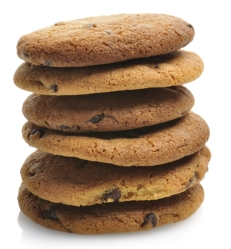
By Dr. Adeyemi Fatoki
 I have often wondered about the effects that different foods have on our moods. There are stories of children who become “hyper” and have trouble going to sleep if they eat sweets close to bedtime, women having sugar cravings around their menses and people eating comfort foods when depressed. Over the years, I have noticed these patterns in my patients and even with myself. In most instances, the foods that we crave like chocolate, sugar, sweets, pastries etc .are the ones that make us feel good for the moment but also lead to obesity and poor health long-term.
I have often wondered about the effects that different foods have on our moods. There are stories of children who become “hyper” and have trouble going to sleep if they eat sweets close to bedtime, women having sugar cravings around their menses and people eating comfort foods when depressed. Over the years, I have noticed these patterns in my patients and even with myself. In most instances, the foods that we crave like chocolate, sugar, sweets, pastries etc .are the ones that make us feel good for the moment but also lead to obesity and poor health long-term.
The connection between mood and foods is a neurotransmitter called serotonin that is found in the brain. Serotonin controls things like our mood, pain sensitivity, and blood pressure. In short, serotonin is the “feel good hormone”. Some antidepressants regulate mood by working on serotonin. Foods made from refined carbohydrates like chips, sweets, pastries, cookies, chocolate make us feel good by causing the release of serotonin. Nicotine has the same effect. This is why these foods can be as addicting as drugs like opiates and cocaine. It is also why we have cravings and withdrawals with these foods. Proteins and unrefined carbohydrates on the other hand do not have the same effect.
 The craving and consumption of refined carbohydrates and sweets is the body’s attempt to self-medicate a dysphoric mood. Unfortunately, these foods have the ability to cause negative effects that may lead to long-term weight gain and poor health. Eating these foods once in a while improves mood and is unlikely to cause serious problems. The issue with them is the way they tend to over-ride the body’s natural ability to limit their consumption similar to that is seen with drugs and nicotine. A good way to deal with the effects of these foods is to realize that they affect our mood and can be addicting.
The craving and consumption of refined carbohydrates and sweets is the body’s attempt to self-medicate a dysphoric mood. Unfortunately, these foods have the ability to cause negative effects that may lead to long-term weight gain and poor health. Eating these foods once in a while improves mood and is unlikely to cause serious problems. The issue with them is the way they tend to over-ride the body’s natural ability to limit their consumption similar to that is seen with drugs and nicotine. A good way to deal with the effects of these foods is to realize that they affect our mood and can be addicting.
Recognize that they have long term consequences on the body and health the same way drugs do. Accept that you may need a higher power or professional help to deal with it the same as you would with any other form of addiction.
– Dr. Adeyemi Fatoki, M.D., is a Bariatrician, Author, & Medical Director of Great Heights Family Medicine in Calumet City and Ottawa, IL and co-founder of Practical Health Technology Solutions and Practical Weight Management Program.
Copyright 2012 Adeyemi Fatoki, MD. All rights reserved. This material may not be published, broadcast, rewritten, or redistributed without permission.
